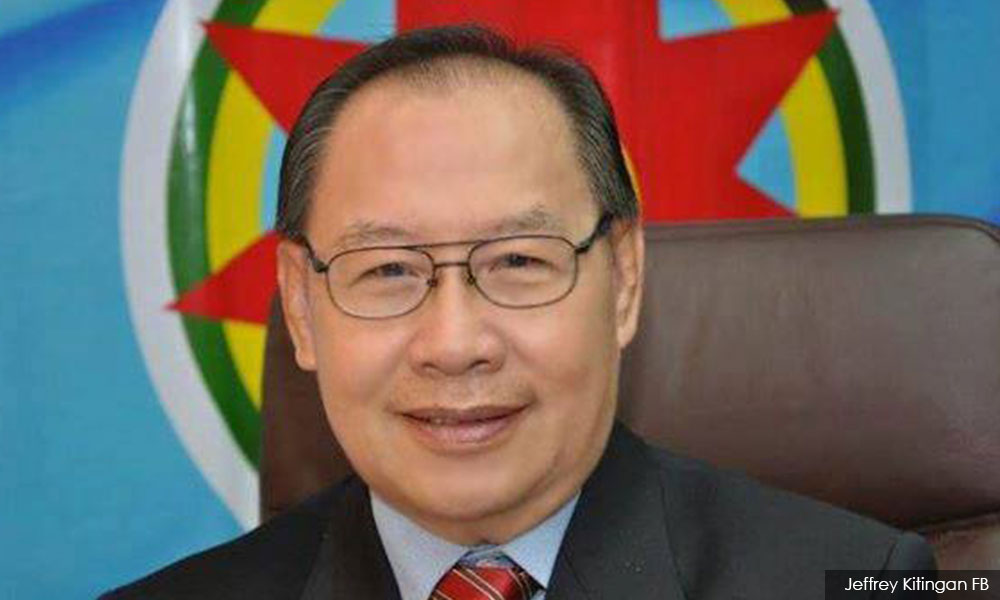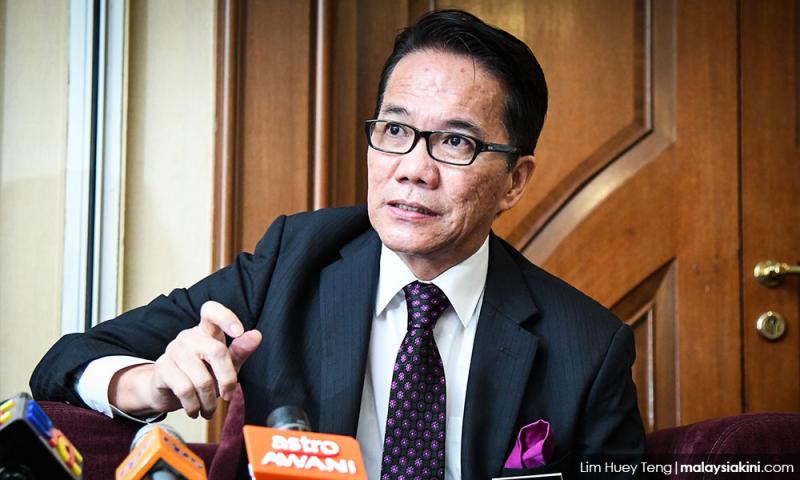Gov't not considering ‘self-determination’ for Sabah, S’wak
PARLIAMENT | The federal government will not entertain any suggestions on the dissolution of the Malaysia Agreement 1963 (MA63) and that Sabah and Sarawak be granted self-determination.
Minister in the Prime Minister’s Department Liew Vui Keong said that the special cabinet steering committee is in the midst of producing its detailed report on the implementation on MA63.
This report is expected to be produced to the federal government in six months.
“The position of Sabah and Sarawak will be reevaluated in detailed based on stipulations within the Federal Constitution and the MA63.
“Besides that, the government will not agree to any suggestion and issue raised in relation to the dissolution of MA63 and self-determination,” he said in reply to an oral question by Jeffrey Kitingan (Star-Keningau).
Jeffrey (photo below) had asked on the status of the special cabinet steering committee to review the MA63, and the government’s take on “outside view” that the agreement is cancelled on the grounds that it was never fully implemented in 55 years.

He also questioned if the government would agree to the dissolution of MA63 and that the two East Malaysian states be permitted to determine its own fate - of staying with Malaysia under renewed terms or independence - through “self-determination”.
Liew reminded that the government had, on March 6, agreed to amend Article 1(2) of the Federal Constitution to restore Sabah and Sarawak's status as equal partners with Malaya.
Liew was reported to have said once the constitution is amended, Sabah and Sarawak will no longer be known as "states".
The amendment bill was to be tabled during the current Dewan Rakyat sitting.
The de facto law minister today explained that five working committees had been formed to review the issued pertaining to MA63. The five committees are:
- Finance cluster - led by Finance Ministry;
- Economic cluster - led by Economic Affairs Ministry;
- Social (Works) cluster - led by Works Ministry;
- Social (Public Service) cluster - led by Public Service Department; and
- Social (Human Resources) cluster - led by Human Resources Ministry
“Each committee has appointed its members and have begun their respective discussions on the issues which have been identified,” the minister said in his reply today.
RM12.50 / month
- Unlimited access to award-winning journalism
- Comment and share your opinions on all our articles
- Gift interesting stories to your friends
- Tax deductable
